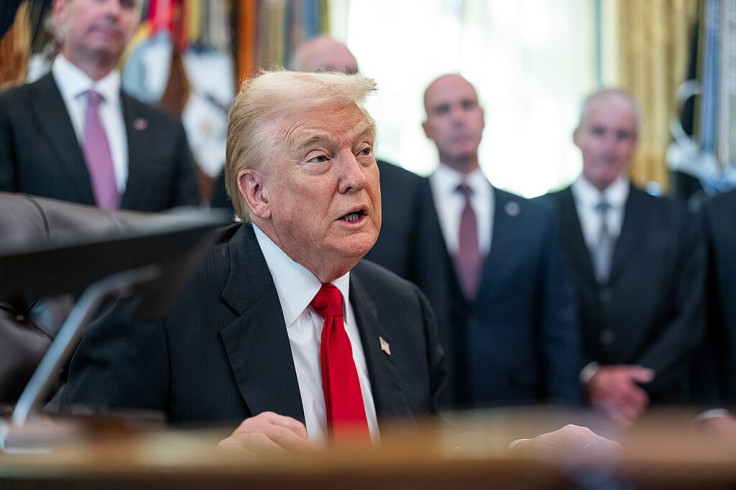'Maniac' Donald Trump Had 'Early Dementia,' Jeffrey Epstein Suggested in Bombshell Email
The email, disclosed as part of ongoing litigation involving Epstein's estate, offers no medical evidence but has sparked renewed scrutiny of the late financier's private communications.

A newly resurfaced email written by Jeffrey Epstein has ignited political debate after the late financier described US President Donald Trump as a 'maniac' and speculated about signs of 'early dementia.'
The comments, included in recently released documents, have circulated widely across social media following late-night television references to the broader Epstein correspondence.
While the remarks have fuelled intense discussion online, no evidence supports Epstein's assertions, and neither Trump nor his representatives have responded publicly.
Epstein's Email Resurfaces in Recently Released Documents
The email was among a collection of Epstein's private correspondence that resurfaced after being included in newly obtained documents. In the message, Jeffrey Epstein allegedly referred to Trump as a 'maniac'. He speculated about 'early dementia,' though the reports emphasise that these comments reflect Epstein's personal views, not any verified medical assessment.
Jeffrey Epstein made similar comments in other communications, describing Trump as 'borderline insane' in some messages, underscoring that these were personal claims rather than substantiated evaluations.
There is no independent evidence supporting Epstein's suggestion about Trump's health.
Jeffrey Epstein’s Emails Reveal He Called Trump a ‘Maniac’ With ‘Early Dementia’ https://t.co/NrexNHVuxE
— The Inquisitr (@theinquisitr) November 13, 2025
Late-Night Hosts Boost Visibility Amid Document Coverage
Visibility of the resurfaced email surged after several late-night hosts referenced the broader Epstein document release in recent political monologues.
Although no full transcript confirms that Jimmy Fallon directly cited this specific email, multiple hosts have incorporated jokes and commentary about the leak during segments discussing the political implications of the correspondence.
Clips of these jokes circulated rapidly across social platforms, amplifying public attention and fuelling partisan debate. Supporters of Trump largely dismissed the claims as baseless mudslinging.
At the same time, critics seized on the resurfaced messages to raise broader questions about the transparency of political health—despite the absence of any factual foundation.
Trump Team Has Not Addressed Epstein's Remarks
Neither the Trump campaign nor his personal spokesperson has responded to the comments found in Epstein's emails. The silence has left discussion driven mainly by speculation, social media reaction and polarised interpretations of Epstein's private words.
Legal analysts note that without corroboration, the resurfaced email is best understood as a reflection of Epstein's personal grievances and rhetoric rather than evidence of any medical concern. Trump's public schedule and media appearances continue regularly, and his allies cite this as evidence of his sustained fitness.
Online Debate Highlights Risks of Context-Free Leaks
As screenshots and quotes circulate online, the risks of misinformation have increased. Outlets reporting on the resurfaced messages stress that Epstein's words have no verified basis and were never intended for public release.
The controversy has reignited broader debates about the political impact of leaked correspondence, particularly when the material includes unverified claims about the health of public figures. Analysts warn that private comments resurfacing without context can distort public perception and fuel narratives disconnected from factual evidence.
Emails Reveal Epstein Called Trump a ‘Maniac’ With ‘Early Dementia’ https://t.co/H4Spr0qPmR
— Fernando Oliver, Esq. (@Fernand46357857) November 13, 2025
Trump's allies have continued to defend his fitness, pointing to his frequent public appearances and demanding schedule.
For now, the resurfaced email remains a cultural flashpoint rather than a substantive revelation—its influence shaped more by online reactions and comedy monologues than by verified facts.
© Copyright IBTimes 2025. All rights reserved.



















